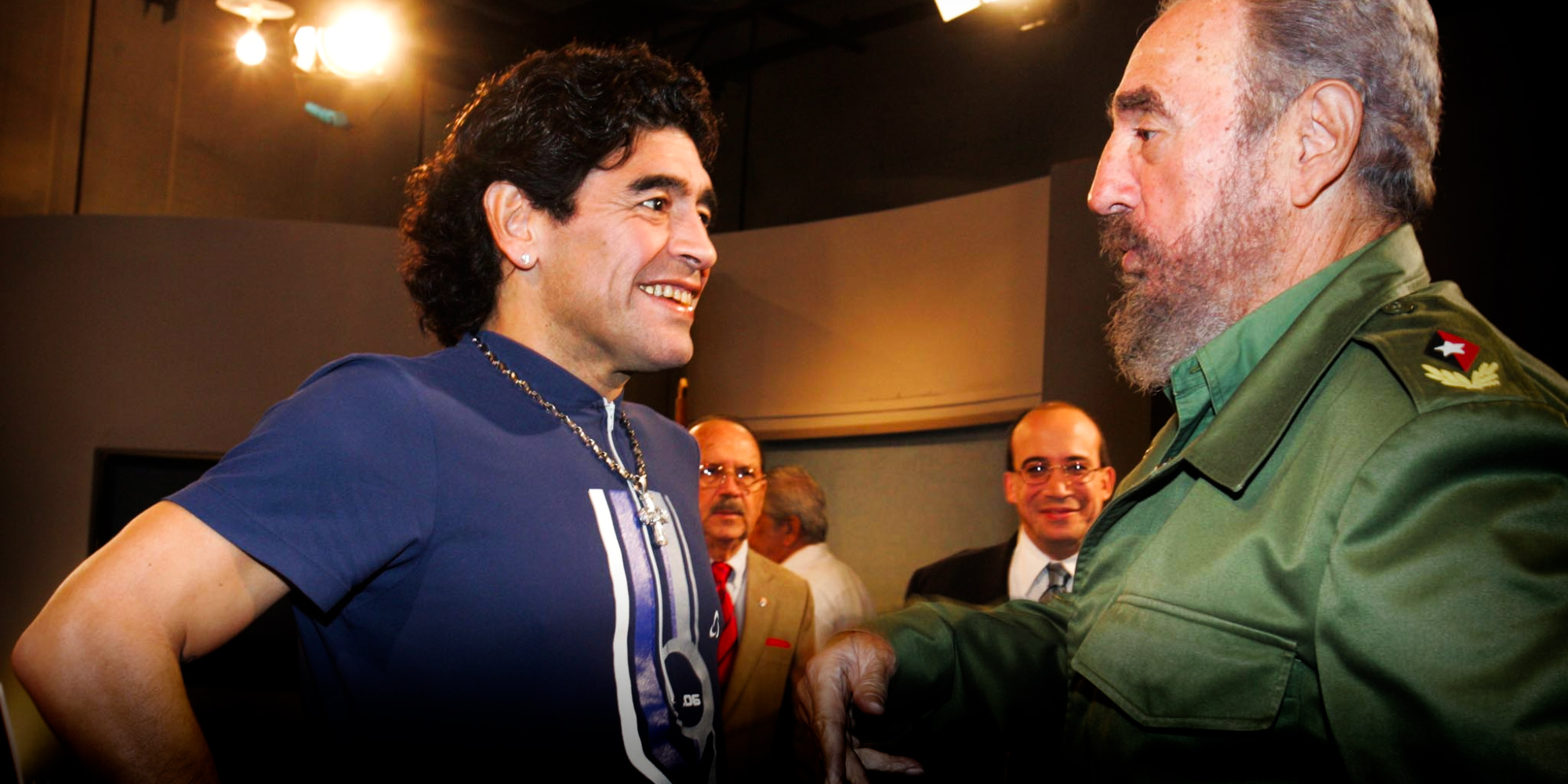Since the announcement of his death on Wednesday at the age of 60, tributes to Diego Maradona have continued to flow.
All of them evoke a legendary footballer, a multifaceted character, but also a politically engaged man, alongside the poorest.
INVESTIGATION
El Pibe de Oro
died Wednesday at the age of 60.
From his debut at Boca Juniors to Naples, including the 1986 World Cup, Diego Maradona set the football world on fire until he became an absolute icon.
With his talent and his personality, the Argentine has become a legend.
He is also politically and socially involved.
"You cannot see Maradona only as a footballer. He represented much more than what happened in a football stadium. He is a man who came out of poverty and who has never forgotten his origins ", says Teo, 22, at the microphone of Europe 1 in Buenos Aires.
>> Find the Carnets du monde podcast and replay here
A spirit of solidarity
Diego Maradona was born in 1960 in Villa Fiorito, a poor neighborhood in the south of Buenos Aires, into a humble family of six brothers and sisters.
For many, he embodied the dream of poor children to get out of poverty with the football and his fans still underline his spirit of solidarity.
"He insisted on keeping the house where he grew up in Buenos Aires," added the journalist and writer Pierre-Louis Basse, who interviewed the Argentinian twice, to the microphone of Europe 1.
>> READ ALSO
- Diego Maradona, a football genius in five acts
Until recently, he had donated money to soup kitchens for families hard hit by the economic crisis that Argentina has suffered for two years.
The footballer had also given his support to a tax project on large fortunes currently being discussed in parliament.
"Maradona is a man who has always defended the causes of the underprivileged and those left behind," confirms Pierre-Louis Basse.
His memory of the Argentine dictatorship
Diego Maradona also supported human rights in Argentina and was seen a lot alongside the mothers of the Place de Mai, these women who were looking for their children who disappeared during the military dictatorship, between 1976 and 1983. He was also very close to the grandmothers in Place de Mai, who are still looking for babies stolen from missing political prisoners.
For him, these women embodied the fight for the memory of the dictatorship in Argentina.
>> READ ALSO
- Death of Maradona: in Buenos Aires, Argentines mourn the disappearance of their icon
"Diego embodied love and the people. He was always on the side of society, on the good side. We lived through a military dictatorship which caused the disappearance of 30,000 comrades. He has always been involved on our side, with us" , testifies Agustina, feminist activist of 24 years.
The grandmothers of the Place de Mai also paid homage to him: "We say goodbye to him, to the Diego of the people, the one who repaired the injustices and the pain of others".
>> READ ALSO
- Diego Maradona in 15 cult quotes
He declared himself a "Peronist"
Politically, Diego Maradona declared himself a "Peronist", a major political movement in Argentina, created in the 1940s by Juan Peron, and difficult to define according to European criteria.
Both right and left, this movement has had a thousand faces according to the governments in power, but it is distinguished by its nationalist and popular rhetoric, its populism, and the defense of a strong state.
"It's social change, transformation, the fight so that the poorest get more," said Ezequiel, 32.
"Diego's social commitment was the best facet of his personality. He was a comrade! I brought a small photo that I will leave on his coffin," he continues, showing a photo of Evita Peron, the second wife of Juan Peron, absolute idol in Argentina, perhaps just as much as Maradona.
Evita Peron died of cancer at age 33 in the 1950s.
>> READ ALSO
- Maradona, icon of pop culture
Close to Castro, Chavez and Maduro
Diego Maradona was also very close to other figures of the Latin American left such as Fidel Castro, whom he had qualified as "second father", but also Hugo Chavez and his successor Nicolas Maduro in Venezuela.
Maradona also had a Che tattoo on her right bicep, and Fidel Castro's face on her left calf.
This anchoring has earned it criticism in the past.
Despite everything, the Argentinian political class has been almost unanimous in recent days in the tributes paid to the footballer, a rare occurrence in this usually very divided country.
Some feminist activists, however, recalled that Diego Maradona had his share of sexist statements and that he was also accused by two of his ex-companions of psychological and physical violence.
>> READ ALSO
- The day Diego Maradona almost signed for OM
Anti-American positions assumed
Diego Maradona also assumed anti-imperialist and anti-American positions, which was unusual in the commercial world of football.
"He escaped manipulation, Pelé didn't for example. He always defied the sports industry and he paid for it. He was 'executed' by FIFA for criticizing the fact that he 'it makes the players play under the sun (during the World Cup in the United States, in 1994) ", concludes Pierre-Louis Basse.

